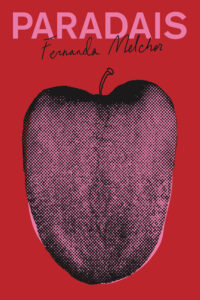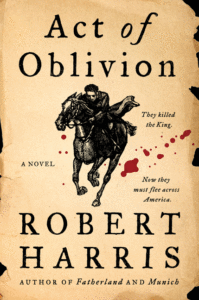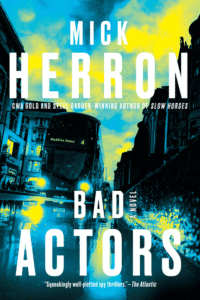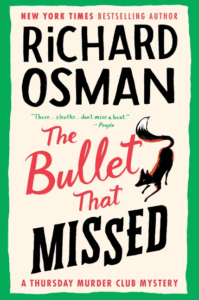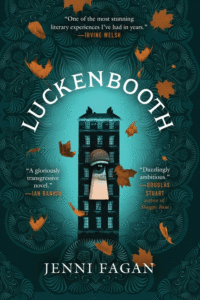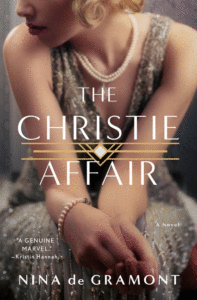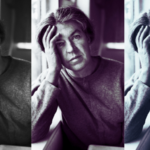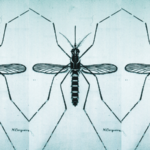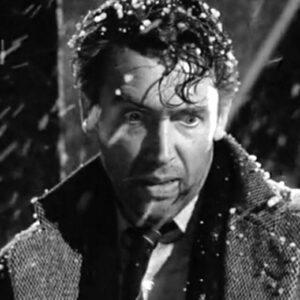We’ve come to the end of another bountiful literary year, and for all of us review rabbits here at Book Marks, that can mean only one thing: basic math, and lots of it.
Yes, using reviews drawn from more than 150 publications, over the next two weeks we’ll be calculating and revealing the most critically-acclaimed books of 2022, in the categories of (deep breath): Fiction; Nonfiction; Memoir and Biography; Sci-Fi, Fantasy, and Horror; Short Story Collections; Essay Collections; Poetry; Mystery and Crime; Graphic Literature; and Literature in Translation.
Today’s installment: Mystery and Crime.
*
1. Paradais by Fernanda Melchor, trans. by Sophie Hughes
(New Directions)
18 Rave • 6 Positive
“Paradais is both more compact and more cogent [than Hurricane Season]. Rhythm and lexis work in tandem to produce a savage lyricism. The translator Sophie Hughes marvellously matches the author in her pursuit of a new cadence … From its first sentence, in fact, Paradais feels rhythmically propelled towards a violent climax. Full stops occur rarely enough to seem meaningful, Melchor using long lines of unbroken narrative to reel in her terrible ending … The author wants to understand the violence, not merely condemn it … The novel’s language, meanwhile, is both high-flown and street-smart, strewn with Veracruzian slang, the odd made-up word and many eye-watering expletives … Pressure builds remorselessly to a dreadful climax. It is an extraordinary feat of control, making Fernanda Melchor’s exceptional novel into a contemporary masterpiece.”
–Miranda France (Times Literary Supplement)
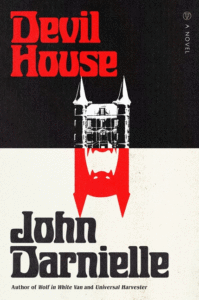
2. Devil House by John Darnielle
(MCD)
14 Rave • 8 Positive • 2 Mixed
Listen to a conversation with John Darnielle here
“… terrific: confident, creepy, a powerful and soulful page-turner. I had no idea where it was going, in the best possible sense … The thing about Darnielle’s writing, in all its forms, is this: If you’re that dorky outcast kid drawing a pentagram on the back page of your three-ring binder in algebra class, not because you want to drink anyone’s blood but because you think it’s cool, he sees you. His novels are in close contact with the alternative cultural universes of fantasy and the occult and science fiction, yet they don’t resemble genre fiction. They’re earthy and fly low to the ground. They are plain-spoken and in no hurry … Devil House…[is]never quite the book you think it is. It’s better.”
–Dwight Garner (The New York Times)
3. Act of Oblivion by Robert Harris
(Harper)
14 Rave • 5 Positive
“Gripping … A belter of a thriller. It will be compulsive reading for those who loved An Officer and a Spy, Harris’s book about the Dreyfus affair. Like that novel, the research is immaculate. A chewy, morally murky slice of history is made into a tale that twists and surprises. The characters are strong and we care about their predicament. The story stretches over continents and years, but the suspense feels as taut as if the three main characters were locked in a room with a gun.”
–Antonia Senior (AirMail)
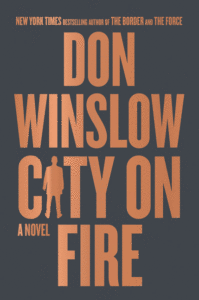
4. City on Fire by Don Winslow
(William Morrow)
14 Rave • 4 Positive
Read an interview with Don Winslow here
“Winslow…brings his sharp interpretive skills to Virgil’s Aeneid, and makes the events at Troy and the founding of Rome into a riveting gangster tale. He makes me wonder why I had never before seen the Trojan War as the obvious fight between rival criminal gangs … In City of Fire, he returns to his New England roots for this new classic he says took him decades to write … Winslow is a master of pacing. Action and erotic sequences fire the adrenaline, while tender scenes feel languid and warm. He shades the relationship between men and women in noir tones. Tough guys don’t always get their way. Noir women are wicked smart, and press their advantages against how men’s low assumptions of women make them weak … Winslow has been lauded for the ways that his previous crime novels confront social issues. He has interrogated the ways that borders work between us, that we’re weak at the border when we build insurmountable walls to shore them up. One that runs under the surface of Winslow’s novel is that it’s not just the faults of individuals that cause these men to fail. But here, rigid definitions of who gets to belong in ‘our thing’ create fatal weaknesses among them. The refusal to think outside their constricted notions of masculinity and honor hobbles them.”
–Lorraine Berry (The Boston Globe)
5. Bad Actors by Mick Herron
(Soho Crime)
9 Rave • 4 Positive
Listen to an excerpt from Bad Actors here
“Herron’s plots are masterpieces of convolution and elegant wrong-footing. Beyond that, his action scenes are fast-paced and thrilling—there are a couple of high-octane doozies in this installment. But the real draw of the series is its dark, dark humor. Much of it is interpersonal, but the most biting of all concerns the state of Britain, a country beset by Brexit, COVID and incompetent, if mercenary, leadership … If there is bad news, it is that you really should have read some of the previous Slough House novels in order to get a handle on this party of rejects, their histories and capabilities. Further, if you are a veteran of the series, you may have become a little weary of Jackson Lamb’s extravagant foulness and his habit of magicking cigarettes and even himself out of nowhere. That said, this is still one of the most enjoyable series I have ever read.”
–Katherine A. Powers (The Star Tribune)
6. The Bullet That Missed by Richard Osman
(Pamela Dorman Books)
9 Rave • 5 Positive • 1 Pan
“Osman concocts a satisfyingly complex whodunit full of neat twists and wrong turns. But unlike most crime novelists, he ensures his book’s strength and momentum stem not from its plot or its thrills but rather its perfectly formed characters. Once again, the quartet of friends makes for delightful company … If there is fault to be found it is a recurring one throughout the series—namely that Osman’s two men have less to do than his two women, and as a result feel like extras around the main double-act. But what a double-act … What could have been twee and uninvolving is in fact heartwarming and enthralling. ‘They carried a kind of magic, the four of them,’ a policeman muses. That magic is still there in abundance.”
–Malcolm Forbes (The Washington Post)
7. Luckenbooth by Jenni Fagan
(Pegasus)
9 Rave • 2 Positive • 1 Mixed • 1 Pan
“. deliciously weird … Fagan once again examines the way people are affected by unhealthy spaces … she writes about placement and displacement with an arresting mix of insight and passion … Fagan tests each floor of No. 10 Luckenbooth as though she’s playing a literary version of Jenga, drawing out one block after another from this unstable structure … a muffled scream—with a feral melody and a thundering bass line. Her prose has never been more cinematic. This story’s inexorable acceleration and its crafty use of suggestion and elision demonstrate the special effects that the best writers can brew up without a single line of Hollywood software—just paper, ink and ghosts.”
–Ron Charles (The Washington Post)
8. The Christie Affair by Nina de Gramont
(St. Martin’s Press)
7 Rave • 2 Positive • 3 Mixed
“An ingenious new psychological suspense novel that concocts an elaborate backstory behind Christie’s disappearance … Here’s the neatest narrative trick of all: As Christie characteristically did, de Gramont hides the solution to the mystery of The Christie Affair in plain sight … The Christie Affair is richly imagined; inventive and, occasionally, poignant; and about as true-to-life as Christie’s own tales of quaint villages with their staggering murder rates. But when fabrications are this marvelous, why demand realism?”
–Maureen Corrigan (The Washington Post)
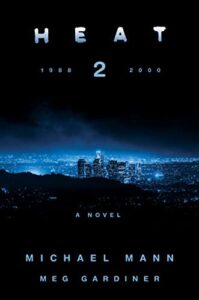
9. Heat 2 by Michael Mann and Meg Gardiner
(William Morrow)
7 Rave • 2 Positive • 2 Mixed
“It’s a pulpy, expansive crime novel that feels of a piece with Mann’s filmography, from its hypercompetent, ambitious characters to the richly detailed underworlds they operate in … At times, Mann and Gardiner use the prequel portion of the book to directly explain the origins of iconic moments from the film, but even those instances tend to feel motivated by the story rather than like cheap ploys to get readers to do the Leo pointing meme … part of the fun of Heat 2 lies in watching its authors pull ideas and tiny details from across Mann’s entire filmography … Heat 2, though, paints complete enough portraits of its characters to allow you to imagine them separately from the stars who played them, making a film adaptation with new actors easier to imagine.”
–Chris Stanton (Vulture)
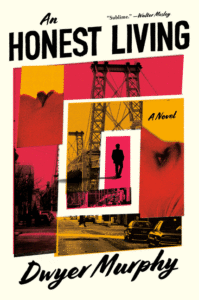
10. An Honest Living by Dwyer Murphy
(Viking)
6 Rave • 3 Positive • 2 Mixed
Listen to an interview with Dwyer Murphy here
“Like the best noir practitioners, Murphy uses the mystery as scaffolding to assemble a world of fallen dreams and doom-bitten characters … Murphy’s hard-boiled rendering of the city is nothing short of exquisite. It’s a landscape of reeking garbage, of salty rain sweeping off the ocean, of Midtown towers that look ‘ghostly like a mountain range,’ … For anyone who wants a portrait of this New York, few recent books have conjured it so vividly. For those who demand a straightforward mystery without any humor, romance and ambience, well, forget it, Jake, it’s literature.”
–Christopher Bollen (The New York Times Book Review)
*
Our System:
RAVE = 5 points • POSITIVE = 3 points • MIXED = 1 point • PAN = -5 points


